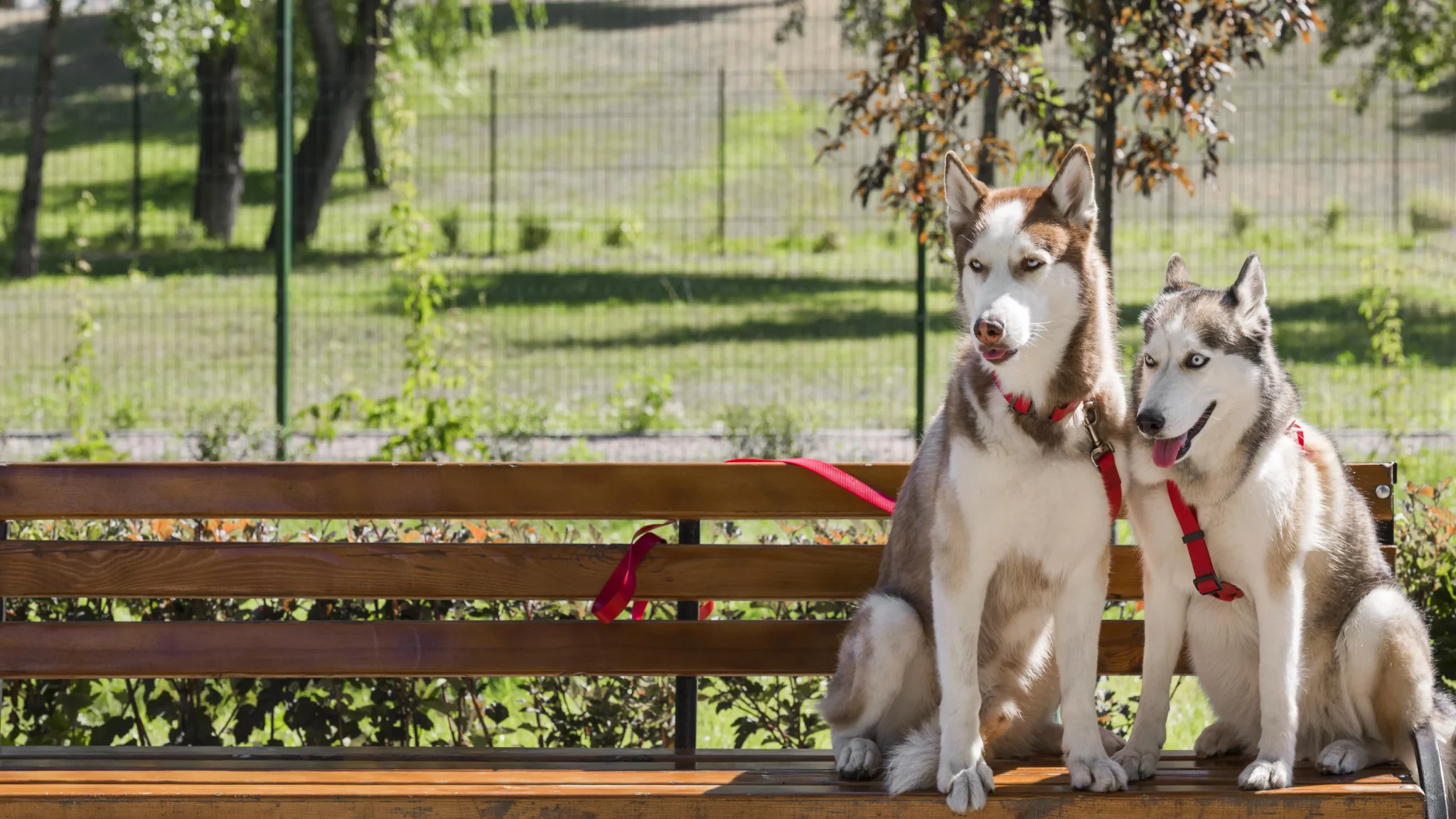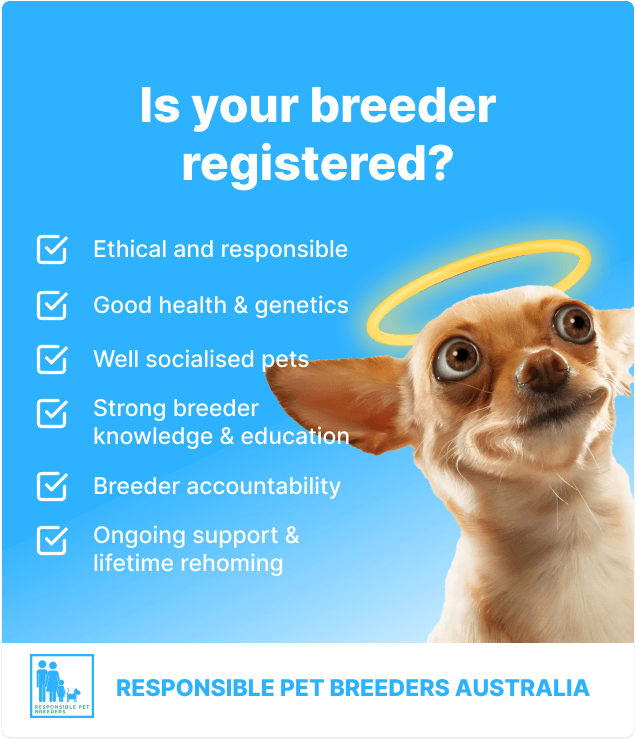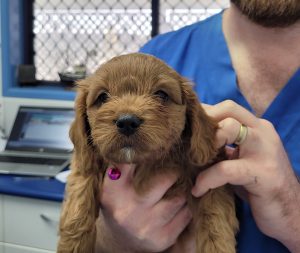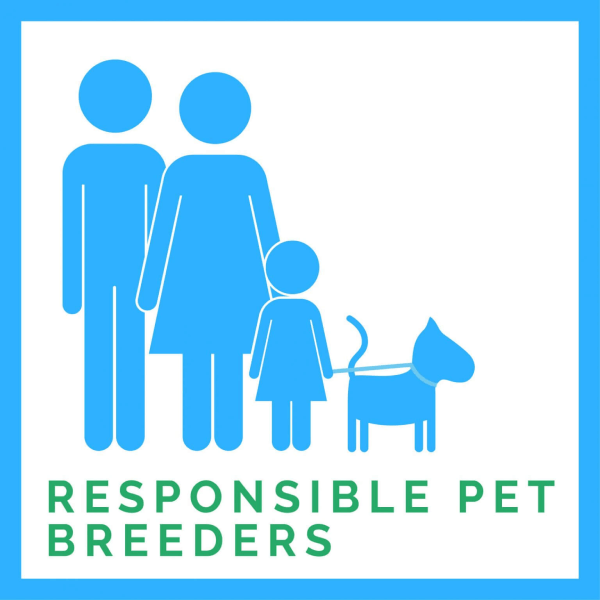Dogs For Sale Sydney
Animal Medicines Australia revealed that more than 69% of households in Australia currently own a pet, 50% of which are dogs. But while the nation is known worldwide to be pet-loving, there are still some cities that impose restrictions when it comes to allowing our beloved canine companions to visit certain public places – one of which is Sydney.
Regulations, however, have not stopped many Sydneysiders from adopting dogs over the years. The pandemic has even helped bring about a significant increase in canine acquisition in this city. This is because families and individuals are constantly longing for companionship and love, which dogs can give. It is no surprise, the average monthly search for dogs for sale in Sydney was 3,600.
If you are considering adopting a dog any time soon but have yet to decide on a specific breed, the chart below may help you find the right canine.

Filter 
Search
Breed
Price Range
Search dogs across Sydney
0 Items Found
Find Puppies For Sale
Did you know that Australia has one of the highest pet ownership rates in the world? While pet ownership rates have grown across the board, Australia is near the top of the pack in terms of percent increase over the the past five years.
 Questions To Ask A Breeder
Questions To Ask A Breeder
- Are you are registered breeder?
- Can we meet in person?
- Have they been socialised?

Breed Characteristics
Grooming
Coming soon.
Exercise
Coming soon.
Size Range
Coming soon.
Public Spaces
Sydney’s dog-friendly public spaces are plentiful and varied, catering to both city-dwelling pets and visiting canine tourists. The city prides itself on having numerous dog parks such as Centennial Park, a large urban park with designated off-leash areas and a dog-friendly café. Another notable location is the Sirius Cove Reserve, where dogs can run off-leash all day during the weekdays and before 9 am and after 4 pm on weekends and public holidays.
For beach-loving dogs, Rose Bay Dog Beach and Greenhills Beach offer the opportunity for dogs to splash in the waves. With open spaces, dog-friendly amenities, and a welcoming atmosphere, these locations exemplify Sydney’s commitment to making public spaces accessible and enjoyable for dogs and their owners.
Transportation
Making a city dog-friendly extends beyond parks and public spaces; it also includes facilitating easy and convenient transportation for dogs and their owners. Sydney Trains allows small dogs in a carrier and larger dogs on a leash and muzzled, provided they are not traveling during peak hours. Dogs are also permitted on Sydney buses and ferries, provided they are secured in a secure crate or other container, and permission is obtained from the driver.
Options like these significantly ease the process of commuting with a pet in Sydney, making the city’s public transport system a more inclusive space for all its commuters.
Accommodations
Finding a place to stay or live with your furry friend is easy in Sydney, as many hotels and accommodations have opened their doors to pets. The Langham Sydney, for instance, offers a Pampered Pets Staycation where dogs are provided with custom-made pet beds, water bowls, and a special pet menu. They even offer pet-sitting so that dogs can chill in the hotel while their furparents
Similarly, the Pier One Sydney Harbour allows dogs in their rooms and provides a range of amenities like dog beds, water bowls, and even dog sitting services. These accommodations go beyond simply allowing pets, providing services that ensure both dogs and their owners have a comfortable and memorable stay. There’s even an option for a doggy minibar.
Most Searched Puppy Breeds In Sydney
Common Questions to Ask your Dog Breeder
For many potential buyers, resisting a cute dog is difficult. This, however, doesn’t mean you should refrain from asking your seller the right questions. An ethical breeder will be more than glad to answer any questions you may have regarding the dog of your choice.
This is because they care more about finding their canine the perfect home than making a profit. You will know that a seller is responsible if they do not have so many dogs in their care and can give each animal individual attention.
It is very important that you see your desired dog with its parents and siblings. This way, you avoid adopting a dog that might be sick or poorly bred. Often, you may not meet the father because it isn’t usually owned by the breeder. Meeting the mother alone will do.
When meeting the dam, see if she has an excellent temperament, appears healthy, and is clean. Look for positive characteristics that her offspring might inherit from her. She should be at least over a year old but not too old.
Preferably, you should see the mother with her litter. This way, you can see how she behaves with her puppies and vice versa. If she seems aggressive or fearful with her young ones, consider it as a sign to look for another breeder.
Generally, young dogs should stay with their parents and littermates for at least seven weeks of age for them to be properly socialised. Those that are more than nine weeks of age often already have their sense of the world around them.
This is why you should ask your breeder the puppy’s age and find out if it has undergone any socialisation training. Make sure the dog has been exposed to other people, animals, sights, and situations. Find out how it reacts to new sounds, smells, and surfaces.
Your new dog’s health all depends on its parents’ health history. This is because any defect in the parents’ genetic lineage can be passed on to the offspring.
To make sure your desired dog enjoys a long and happy life, it is advised that you request your breeder for the sire and dam’s health certificates and other tests so that you can rule out any common genetic diseases that are common to their breed.
Bear in mind that ethical breeders should have their dog fully weaned from its mother at seven weeks of age. If their dog still does not eat solid foods at eight weeks old, it could be younger than what your seller is claiming. In such a case, go find another breeder.
When it comes to the food you should feed your puppy, your seller will most likely recommend that you continue feeding it what it has been accustomed to for at least another few days. If you get lucky, your breeder will even give you a few days’ supply of food to bring home.
Aside from food supply, your breeder may also give you a diet sheet. This is a food plan that answers any questions you might have about your new puppy’s feeding schedule and nutritional needs.
When you finally decide to introduce your puppy to a new diet or brand of food, it is advised to do it gradually. This way, you avoid giving your furry pal abdominal pain. Your breeder may suggest a high-quality and well-balanced meal packed with protein.
A dog’s first round of vaccinations should be administered when they are six to nine weeks of age. Their second round of shots should be received when they are 10 to 12 weeks old. Ideally, your breeder should be the one to take care of the first series of shots.
Once you have brought your dog home and are now in charge of its second series of vaccinations, ask your breeder how many shots your dog has already had. Know when the next vaccination schedule will be.
Most ethical breeders should be able to provide you with a medical history, vet report, and health examination of the dog of your choice. If they can’t, they should be willing to refund you if any serious health issues arise within the first few weeks or months of bringing your dog home.
Additionally, a trustworthy breeder should be able to offer you a contract of sale. They should also be willing to give you their contact information so that you can get in touch with them if any concerns arise.
Safe
Responsible
Accountable
Find your next pet with PetsForHomes - Australia’s number one free website to find a pet for sale or adoption.
Trusted & Viewed by over 1 Million Australians





